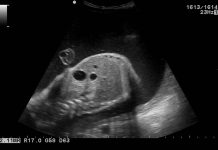When your baby starts teething, it becomes a very painful experience, for both the mother and the child. With the emerging teeth, the baby starts feeling a lot of irritation and discomfort. And, it is really difficult for a mother to witness her child losing his appetite and sleep due to this. So, how does one know whether the baby has actually started to teeth or not? If one knew the signs or symptoms, one could take some necessary actions for soothing the paining and itching gums.
While some symptoms last for only a few days, some of them might last for several months, depending upon the number of teeth that are coming out at once. While a third of the babies might be drooling during teething, the other third might become irritable, and the remaining third might face problems while sleeping. Not all the babies will have the same symptoms. In fact, a few lucky kids do not have much problem while teething.
Stages in teething – When do kids actually start teething?
- 6 – 12 months: The teeth in the middle, or the central incisors
- 9 – 12 months: These are the teeth that are next to central incisors.
- 16 – 22 months: Canine teeth
- 13 – 19 months –1st molars
- 25 – 33 months –2nd molars
By the age of 3, most of the children get all their primary teeth.
Signs or symptoms of teething
Given below are some of the signs that show that the baby has started to teeth:
1. Excessive Drooling
While babies are just new-borns, they drool a lot, as they do not know how to swallow the saliva. But, this tendency starts reducing as they grow up. This drooling problem emerges again when they start teething. This is because the body starts creating extra saliva for lubricating the tender gums, which also starts swelling.
2. Excessive biting tendency
When the teething erupts in a baby, it has the tendency to bite more. And, it would want to bite anything and everything. The harder the better, as it gives it enough resistance for the swelling gums. And, that’s the reason that there are special teething toys, meant for babies who wish to bite on things.
3. Crankier than usual
With the teething symptoms, the babies become crankier than usual. They lose out on their night time sleep, and keep waking up several times during the night, just to be comforted back to sleep. Night hours aggravates all kinds of pain, even for the adults. And, the babies too feel that pain, as there are less distractions.
4. Disturbed sleeping patterns
The sleeping patterns of the baby goes disarrayed. Their nap times become less, and their wake up times is preponed, as well.
5. Fever, cough, diarrhoea
Though, the doctors might tend to disagree, most mothers can detect slight fever, below 100 degrees, in the kids, when the teeth are about to emerge. And, they can end up having more of coughing, as the back of the throat gets choked. Some of the kids are also known to develop problems like diarrhoea, and diaper rashes.
6. Reduced Appetite
While babies are teething, they also tend to eat lesser. Eating food brings pain along, so the kids try to avoid food. It would be good to give them more of liquid diet during this period, so that they get all the energy that they require.
7. Rubbing cheeks and chin
Babies require massage on their cheeks and chin, as that eases off the pain and throbbing, which is associated with teething issues. They tend to do it on their own. So, when you see your baby rubbing along their jaw line, you will know that teeth are about to emerge.
8. Swollen gums
The babies’ gums might become swollen. And, when you touch them, you might find a tooth visible just below the gum. Sometimes, the swollen gum might spread the swelling to the cheeks, as well.
9. Grabbing and pulling ears
This is another common symptom, which is associated with teething. When you see your baby pulling his or her ears too often, it means that he is having irritation in the gums and the jaw, and he wishes to ease off the pain.
10. Teething rashes
When the baby starts drooling, the drips from the mouth can cause chapping, chafing, redness, along with rashes. The drool can also lead to skin rashes on their face.
11. Crying
While some babies easily breeze through the teething period, there are others, who have to go through a lot of pain. With inflammation and tender gum, they end up whining and crying a lot. After a couple of teeth have come out, the baby understands how it feels like, and will not create a lot of fuss, on subsequent teeth.
Is it teething or not?
Sometimes, the baby might be suffering from fever, running nose, or diarrhoea, but the baby might not be teething at all, actually. If the symptoms go beyond 24 hours, then it is a cause for concern. And, you should show to the doctor immediately.
How to deal with teething?
- Give him a chewing toy, which will give him a chance to apply counter-pressure to the gums. Soft and chewy toys will be effective.
- Give him some cold water, which can provide relief to the achy gums.
- Cold food, like yoghurt, frozen fruits and refrigerated food can also give him a good relief.
- Give him some extra hugs, snuggles and kisses, which the baby will definitely appreciate.
Usually, the teeth start showing up when the babies are 4 months old till they are about 7 months old. But, if it takes a little longer than that, then, there is nothing to worry about, especially if the growth of the bones, hair and skin are normal. If the child is more than 18 months old, and still the teeth have no signs of appearing, then, a visit to paediatric is a must.
References
https://www.babycenter.com/0_teething-signs-and-symptoms_10357437.bc
https://www.mamanatural.com/7-signs-your-baby-is-teething/













